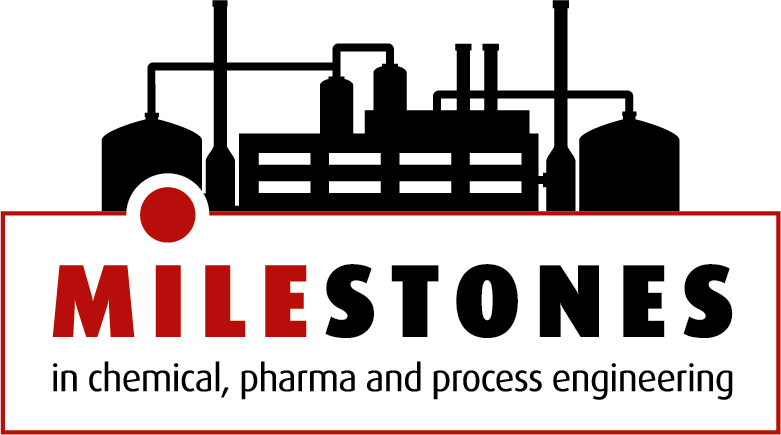:quality(80)/images.vogel.de/vogelonline/bdb/1771200/1771247/original.jpg)
Circular Economy Neste, DSM to Develop High Performance Polymers from Sustainable Feedstock
Under a strategic partnership signed between Royal DSM and Neste, DSM will help Neste to create high-performance sustainable polymers in order to reduce the carbon footprints of its own products and also support the circular economy transition.
Related Company

Finland – Royal DSM has recently announced that it will start a strategic partnership with Neste to enable the production of high-performance polymers. This enables DSM and its customers to reduce the carbon footprint of their own products whilst supporting the industry to transition to a circular economy.
In the new strategic collaboration, DSM Engineering Materials will start replacing a significant portion of the fossil feedstock used till date in the manufacture of its high-performance polymers portfolio with feedstock produced from recycled waste plastics and/or 100 % bio-based hydrocarbons. These polymers are used, for example, in the automotive, electronics and packaging industries.
Over the short term, the collaboration aims to replace several thousand tonnes of fossil feedstock in the production of polymers with alternative, sustainable feedstock: bio-based and waste plastic -based hydrocarbons.
Neste produces its bio-based hydrocarbons entirely from renewable raw materials, such as waste and residue oils and fats. For the production of waste plastic derived feedstock, Neste focuses on plastics that cannot be mechanically recycled and have previously been directed to incineration and landfilling.
Thanks to being a drop-in replacement to commonly-used fossil feedstock in the polymers production, Neste’s products are suitable for existing production infrastructures and enables DSM to produce more sustainable products with consistently high quality using its existing processes.
All of the chemically recycled and bio-based materials within the value chain will have the globally recognised ISCC Plus certification and will not require re-qualification.
The new strategic cooperation underlines a strong commitment from both partners to contribute to a circular economy by collaborating throughout the value chain, and addressing the increasing consumer, societal and regulatory demand for more sustainable circular solutions.
Shruti Singhal, President DSM Engineering Materials said: “We have a long history of delivering tangible proof points of our commitment to sustainability. As a next step we are going to even further reduce our footprint and will offer a full alternative range of our existing portfolio based on bio- and/or recycled-based materials by 2030. Together with our upstream partner Neste and other value chain partners we’re ready to drive our industry forward, seize the sustainable opportunities ahead, and deliver on our purpose of creating brighter lives for all.”
Mercedes Alonso, Executive Vice President, Renewable Polymers and Chemicals from Neste said: “Neste and DSM are frontrunners in providing sustainable solutions to the market. Both companies have a similar sense of urgency towards creating a healthier future for our children. Neste is very pleased to announce this partnership with DSM through which we can further accelerate the industry transformation towards a more sustainable, circular economy. It is exciting to see how our 100 % bio-based and waste plastic-based products enable DSM to produce its high-performance polymers portfolio with a reduced environmental footprint.”
(ID:47015648)




:quality(80)/images.vogel.de/vogelonline/bdb/1771100/1771162/original.jpg)
:quality(80)/images.vogel.de/vogelonline/bdb/1770200/1770232/original.jpg)
:quality(80)/images.vogel.de/vogelonline/bdb/1768700/1768731/original.jpg)
:quality(80)/images.vogel.de/vogelonline/bdb/1773300/1773360/original.jpg)
:quality(80)/images.vogel.de/vogelonline/bdb/1772600/1772667/original.jpg)
:quality(80)/images.vogel.de/vogelonline/bdb/1772200/1772215/original.jpg)
:quality(80)/images.vogel.de/vogelonline/bdb/1771600/1771623/original.jpg)
:quality(80)/images.vogel.de/vogelonline/bdb/1755500/1755515/original.jpg)
:quality(80)/images.vogel.de/vogelonline/bdb/1750100/1750119/original.jpg)
:quality(80)/images.vogel.de/vogelonline/bdb/1744100/1744189/original.jpg)
:quality(80)/images.vogel.de/vogelonline/bdb/1740600/1740654/original.jpg)
:quality(80)/images.vogel.de/vogelonline/bdb/1773600/1773666/original.jpg)
:quality(80)/images.vogel.de/vogelonline/bdb/1773000/1773040/original.jpg)
:quality(80)/images.vogel.de/vogelonline/bdb/1772400/1772420/original.jpg)
:quality(80)/images.vogel.de/vogelonline/bdb/1774000/1774030/original.jpg)
:quality(80)/images.vogel.de/vogelonline/bdb/1771600/1771674/original.jpg)
:quality(80)/images.vogel.de/vogelonline/bdb/1766200/1766226/original.jpg)
:quality(80)/images.vogel.de/vogelonline/bdb/1765300/1765382/original.jpg)
:quality(80)/images.vogel.de/vogelonline/bdb/1774200/1774227/original.jpg)
:quality(80)/images.vogel.de/vogelonline/bdb/1774200/1774206/original.jpg)
:quality(80)/images.vogel.de/vogelonline/bdb/1773800/1773850/original.jpg)
:quality(80)/images.vogel.de/vogelonline/bdb/1769000/1769071/original.jpg)
:quality(80)/images.vogel.de/vogelonline/bdb/1750700/1750774/original.jpg)
:quality(80)/images.vogel.de/vogelonline/bdb/1662500/1662568/original.jpg)

:quality(80)/images.vogel.de/vogelonline/bdb/1709700/1709792/original.jpg)
:quality(80)/images.vogel.de/vogelonline/bdb/1765100/1765163/original.jpg)